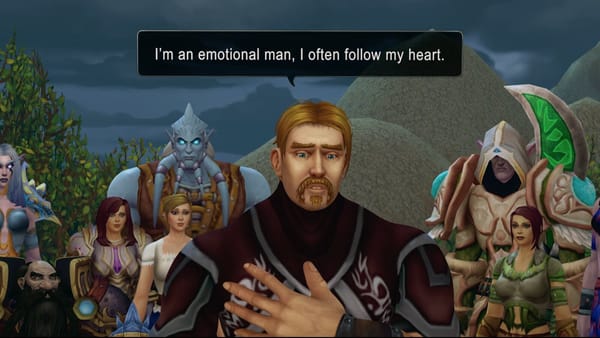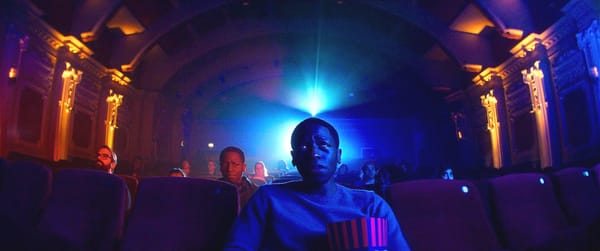Sundance Report II: "Love" and "Pain" and The Whole Damn Thing
Reviews of "A Real Pain," "Love Lies Bleeding," "Black Box Diaries," My Old Ass," "The Outrun," and "Presence."
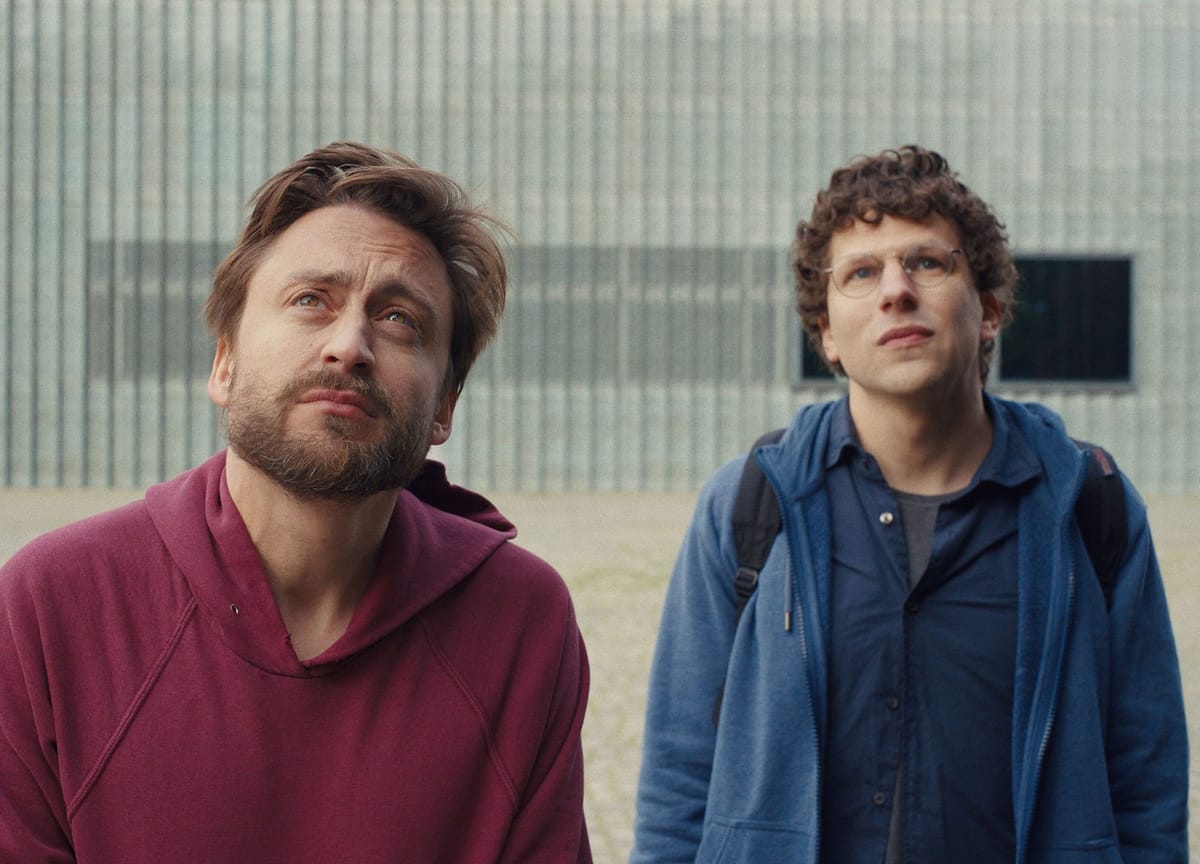
My standard Sundance operating procedure is to catch as many movies as possible in a given day, dashing from one to another and griping about the shuttle bus schedule. After Sunday morning’s screening of “A Real Pain” (⭐ ⭐ ⭐ ⭐), though, I canceled the next few appointments and took some time to process. The movie is actor Jesse Eisenberg’s second feature as a writer-director and several steps up from 2022’s perfectly okay “When You Finish Saving the World” – not coincidentally, he’s working this time from events close to his heart and his family. Eisenberg and Kieran Culkin play two American cousins, David and Benjy Kaplan, who are taking a Holocaust tour in Poland, with a final stop at the house their grandmother fled in 1938 (played by the house Eisenberg’s own grandmother fled in 1938). David is the fussy worker ant in this parable, married, with a job, a wife, and a child (played in brief glimpses by Eisenberg’s son), and Benjy is the grasshopper – a live-wire handful with no job prospects and no filter. Layering a buddy comedy atop this setting would seem to be a risk, to say the least, but “A Real Pain” manages to get laughs out of the characters’ interactions while deepening emotionally at every turn, a tribute to Eisenberg’s confidence with tone and compassion for the victims of history – both family history and the world’s.
The locations (Warsaw, Lublin, a long immersion in the Majdanek concentration camp) are filmed with appropriate weight, and the other members of the group are incisively drawn: the well-meaning but academic tour leader (Will Sharpe), an emotionally bruised divorcee played by Jennifer Grey, a survivor of the Rwandan genocide (Kurt Egyiawan) who’s converted to Judaism – a character based on one of the director’s own friends. But it’s the central relationship that dominates the film, with David a tightly-wound control freak and Benjy the kind of person who, in his cousin’s words, “lights up every room he comes into – and then shits on everything in it.”
Eisenberg plays within his chattery, over-analytic wheelhouse while letting us see David’s love, envy, and frustration with Benjy, but Culkin is a revelation, or would be if you hadn’t seen the final episodes of “Succession,” in which Roman becomes the one Roy child graced with tragic self-knowledge. I had to remind a critic friend that the actor has been showing his talents since 2002’s “Igby Goes Down,” a movie I still maintain is the greatest adaptation of “The Catcher in the Rye” that isn’t “The Catcher in the Rye.” But “A Real Pain” – the title radiates out in many directions and is perfectly positioned onscreen at the film’s beginning and end – should convince any remaining doubters that Culkin is a unique and major talent. Benjy could be and initially seems an engagingly wacky Zach Galifianakis-style character (no disrespect to Galifianakis), but he takes Benjy into a lost-boy dimension that becomes heartbreaking by the film’s final scenes and that somehow resonates with the immense loss of a people, a community, and an entire vanished world. I had to go someplace quiet after seeing “A Real Pain,” and I’m still sitting with the movie. (To be released by Searchlight later in the year.)
Culkin wasn’t present at the post-film Q&A Sunday morning, but Eisenberg was, and he spoke about working with – and appreciating – an actor who’s the exact opposite of tightly-wound.
(For the record, Eisenberg also features in a random personal memory that has always been for me the representational Sundance moment. I don’t remember the year – it was probably in the early 2010s – but I was sitting in a Main Street café at a window counter, people-watching the parade pass by on the sidewalk outside. Suddenly Jesse Eisenberg crosses from left to right, lost in thought on his way to a panel or some such. Ten seconds later, he’s followed by a man in a bear costume.)

You remember that in my last post I called this “the cute Sundance”? Forget I ever said that: “Love Lies Bleeding” (⭐ ⭐ ⭐ 1/2) is thrillingly not nice – a lost lesbian Jim Thompson 50’s noir amped up on muscle juice, mean as a snake, and directed, I mean DIRECTED, by Rose Glass within a thrashing inch of its life. The British-born and -raised Glass made a startling debut with “Saint Maud” (2019), about a delusional young Christian evangelical (Morfydd Clarke) in Yorkshire, and Glass mentioned in the Saturday night’s post-screening Q&A that the new film was almost filmed in Scotland. Hard to believe, since this hard-boiled crime romance seems made for its seamy, sweaty New Mexico setting. Kristen Stewart plays Lou, the grease-stained manager of a weight-lifting gym who takes one look at new girl in town Jackie (Katy O’Brian of TV’s “The Mandalorian”) and falls hard and fast. Jackie is breezing through and bulking up on her way to a body-building contest in Vegas; Lou wants to follow but is staying around to protect her big sister (Jena Malone) from an abusive husband (Dave Franco, splendidly loathsome). Lurking on the movie’s fringes is Ed Harris as Lou’s father, the local crime kingpin and, with his Crypt-Keeper hairdo, a genuinely malevolent force.
Those are the players, and Glass keeps the tension as taut as a garrote while events tumble inevitably out of control, Jackie’s newfound taste for anabolic steroids affecting her emotional stability in … unpredictable ways. (The movie is set in 1989, around the time several “’roid-rage” incidents occurred in the bodybuilding world.)
Glass is the real deal – a natural-born filmmaker who takes risks, respects her genres, and possesses an intuitive daring that propels “Love Lies Bleeding” forward, goosed by moments of shocking violence but grounded by the magnetic attraction of its two central figures. Stewart digs into her character’s wary resourcefulness – Lou doesn’t look like much but she’s the town’s moral center – and O’Brian is superb as a footloose free spirit who becomes an incredible female hulk, a metamorphosis Glass takes to surrealist extremes in the film’s final moments. “Love Lies Bleeding” commits completely to its vision of neo-pulp fiction with a ferocity that sometimes turns uneven and sometimes goes too far – it’ll turn off a fair handful of viewers, but you never doubt you’re in the hands of a master. (In theaters March 8.)
At the post-screening Q&A Saturday night, Dave Franco was asked to comment on his hateful wife-beating character, with cast-mate Kristen Stewart chiming in from the sidelines.
Four short Sundance takes:
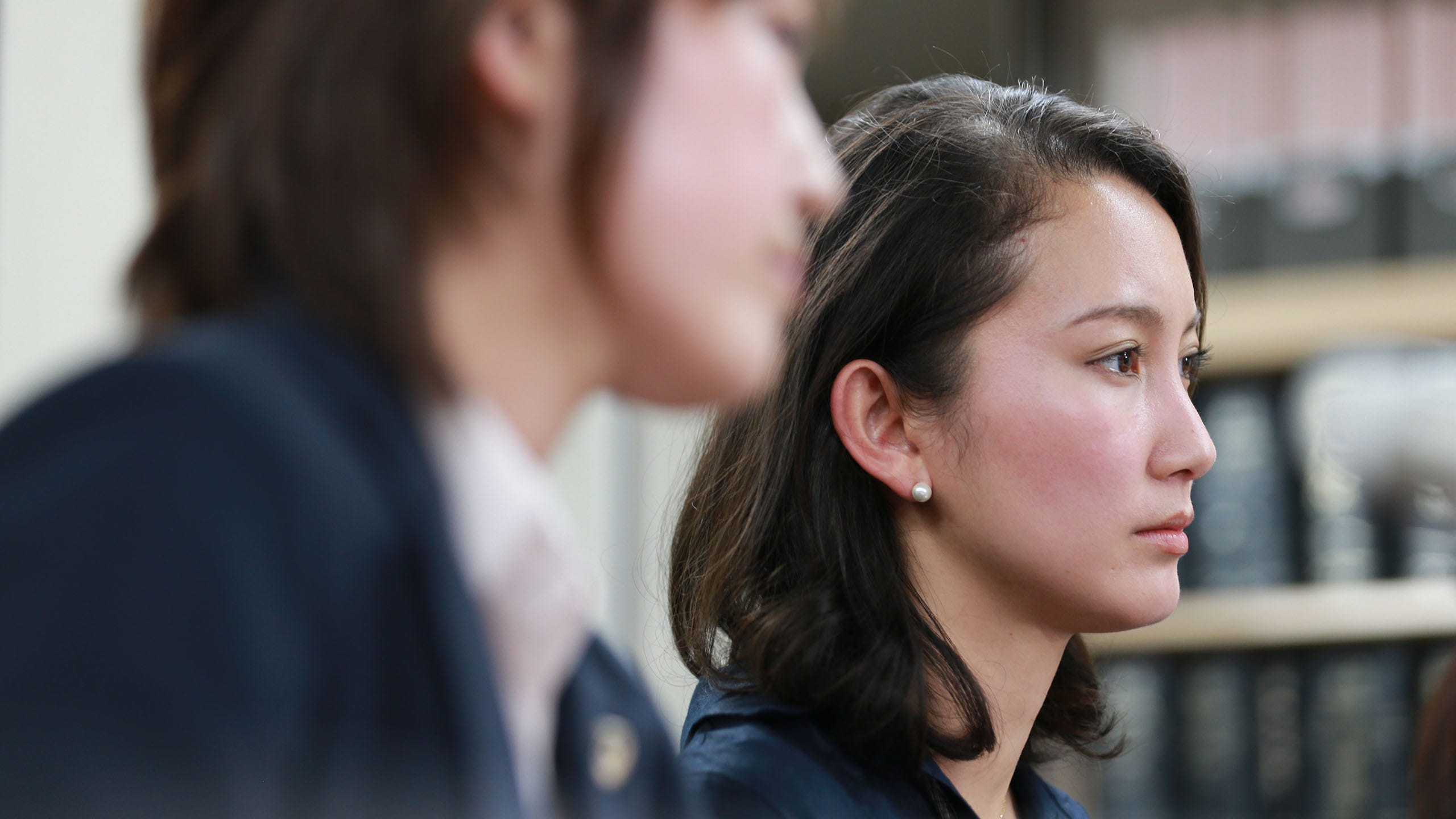
“Black Box Diaries” (⭐ ⭐ ⭐ 1/2) In 2015, Japanese journalist Shiori Itō met with prominent media figure Noriyuki Yamaguchi at a restaurant, became unconscious after one drink, and woke up in a hotel with Yamaguchi raping her. After the police declined to charge Yamaguchi – a close friend of then-Prime Minister Shinzo Abe – Itō did the unthinkable in Japan: She took her case public and, enduring fierce negative backlash from the press and public, filed a civil suit against her attacker. Directed by Itō as events unfolded, “Black Box Diaries” is part documentary, part investigative procedural, and part therapy for a woman still suffering from PTSD. Despite issues of journalistic objectivity, some of which the film grapples with and some it ignores, this is a galvanizing portrait of a beleaguered heroine forcing her society into recognizing the need for change. (Seeking distribution.)
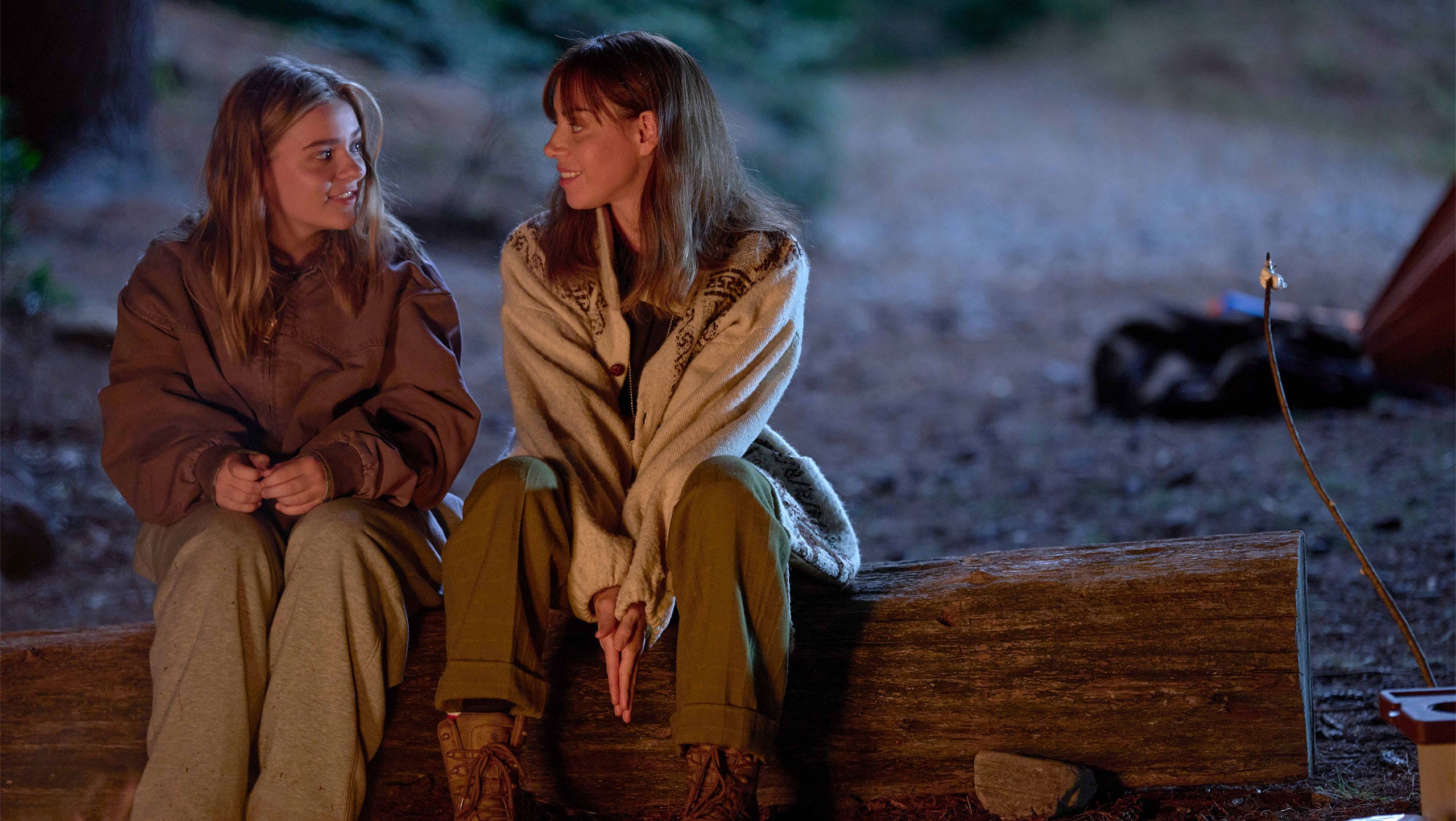
“My Old Ass” (⭐ ⭐ ⭐) – A crowd-pleasing romantic-comedy from Canadian writer-director Megan Park (“The Fallout”) with a fun premise: A teenage girl (the charming Maisy Stella) is visited during a mushroom trip by her 39-year-old self from the future and warned to steer clear of any guys named Chad. Of course, the next day she meets a guy named Chad (the equally charming Percy Hynes White). Aubrey Plaza plays the older self, and my major complaint with the film is that there’s not enough Aubrey Plaza content for my satisfaction. My minor complaints are the film’s reliance on the wacky Black best friend trope (despite the charming Kerrice Brooks in the role) and a needless subplot about the heroine being gay that has the unintended effect of making teenage lesbianism seem like a phase. Which maybe it sometimes is, and that can be real life too, but it still stuck in my teeth like a piece of spinach. Otherwise, “My Old Ass” charmingly explores the angsts of leaving home and making choices even when you know some of them are going to smack you against the wall. Sort of like “CODA,” but with time travel. Did I say the movie was charming? (Seeking distribution.)
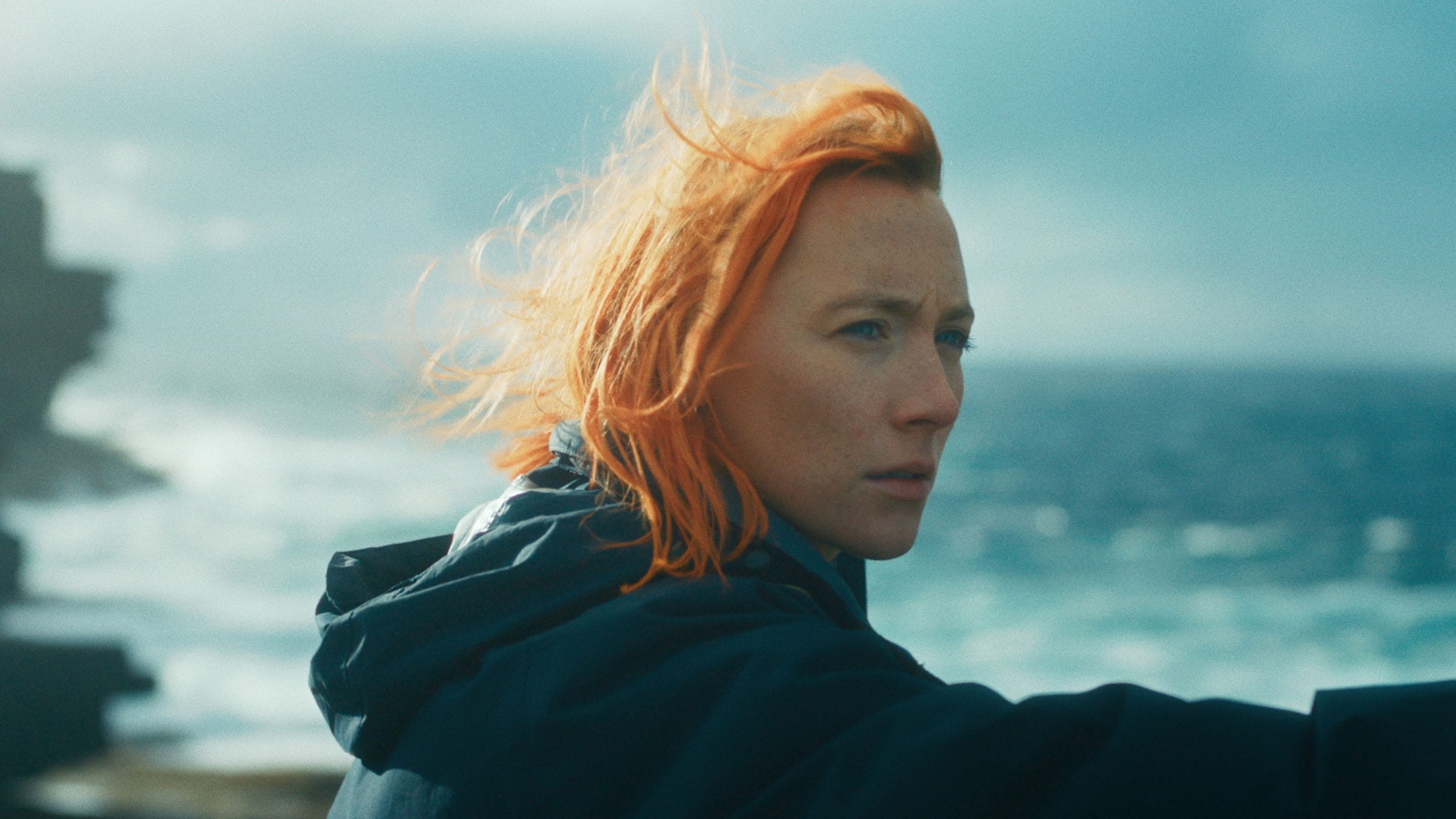
“The Outrun” (⭐ ⭐ 1/2) – A recovery drama, with Saoirse Ronan playing a party-hearty London alcoholic who retreats to her home in Scotland’s windswept Orkney Islands to bootstrap sobriety. The locations are gob-stoppingly beautiful, and to no one’s surprise the star gives a committed and fully felt performance. I don’t mean to sound cynical when I say that most recovery movies are pretty much the same even when the details differ, and that their importance lies in who they reach and when, so that it may not even matter that they’re pretty much the same. Anyway, it’s solid enough and awfully familiar, emphasis on both words, especially to anyone who might see themselves in the heroine’s mighty struggle. (Seeking distribution.)
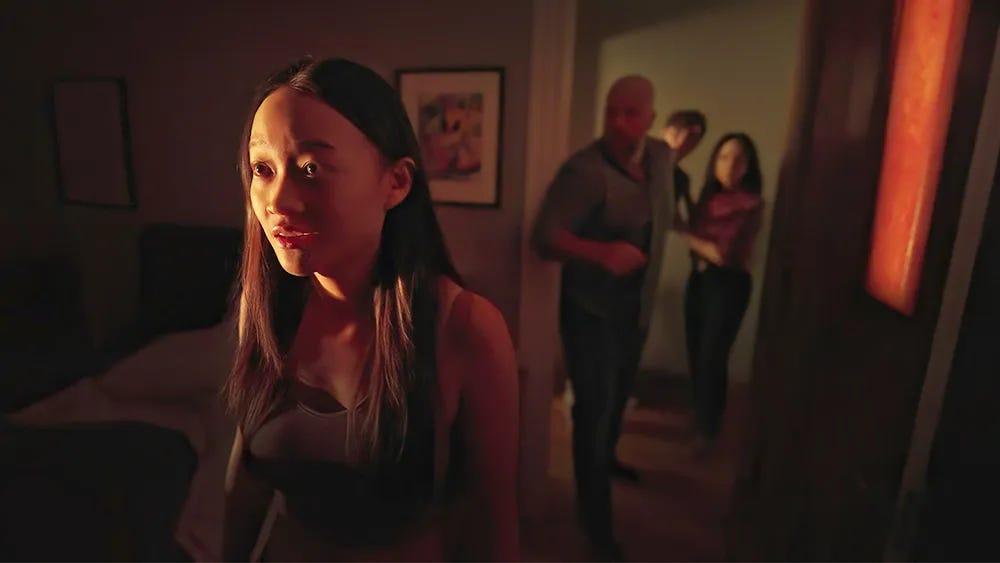
“Presence” (⭐ ⭐ ⭐ 1/2) – A ghost story from the point of view of the ghost, which has been done before (“A Ghost Story,” “The Sixth Sense”) but never by Steven Soderbergh, who treats this as his latest genre lab experiment. There are critics who wish the director would start shooting for greatness again (a la “Out Of Sight,” “Erin Brockovich,” “Ocean’s Eleven,” and “Traffic”) and there are some of us who think that entertaining, intelligent, exquisitely professional miniatures like “High Flying Bird” and “Kimi” can yield different rewards than ambition. A family moves into a rambling old house where only teenage daughter Callina Liang senses a spectral force roaming the hallways, hovering protectively over her shoulder. Dad Chris Sullivan is sympathetic but clueless, mom Lucy Liu is a workaholic, and big brother Eddy Maday is a bully – it’s just the girl, the ghost (in the form of Soderbergh’s ever-prowling camera), and us. With a tight script by David Koepp, “Presence” is a model of narrative efficiency and emotional engagement – filmmaking with the least amount of fat imaginable. (Seeking distribution.)
Comments? Let’s hear ‘em.
If you enjoyed this edition of Ty Burr’s Watch List, feel free to pass it along to others.
If you’re not a paying subscriber and would like to sign up for additional postings and to join the discussions — or just help underwrite this enterprise, for which the author would be eternally grateful — here’s how.
You can give a paid Watch List gift subscription to your movie-mad friends —
Or refer friends to the Watch List and get credit for new subscribers. When you use the referral link below, or the “Share” button on any post, you'll:
- Get a 1 month comp for 3 referrals
- Get a 3 month comp for 5 referrals
- Get a 6 month comp for 25 referrals. Simply send the link in a text, email, or share it on social media with friends.
There’s a leaderboard where you can track your shares. To learn more, check out Substack’s FAQ.


